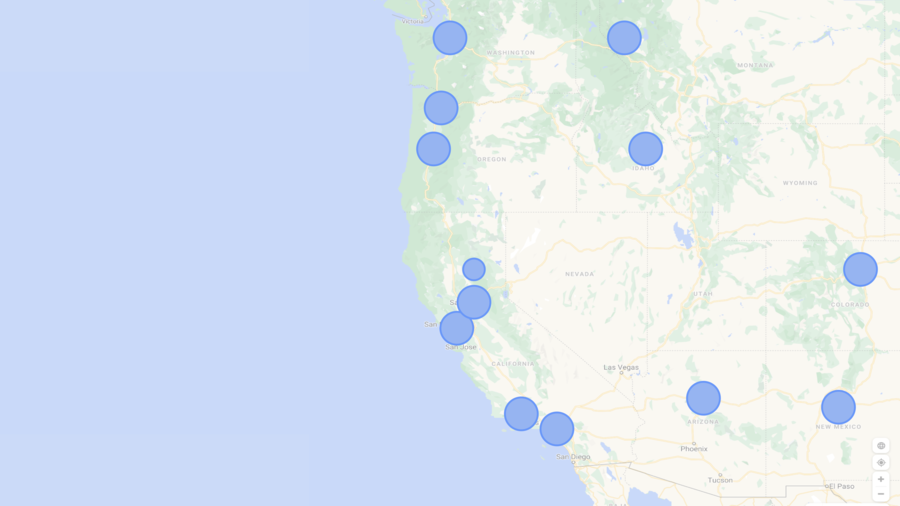Western Region
Anthroposophical Society in America
Welcome!
The Western Regional Council’s (WRC) primary task is to connect people and to encourage the circulation of anthroposophical ideas and initiatives in the American West. The WRC seeks to deepen esoteric and community life through visits with groups and branches, meeting with local members in person or online. In order to be aware of local activity and give needed support for any issues, each council member maintains connections with the contacts in their assigned region.

The Western Regional Council
The current members of the Western Regional Council are:
Micky Leach
Santa Fe, NM
E-Mail
Paonia Mills
Denver, CO
E-Mail
Sandra Stoner
Sacramento, CA
E-Mail
Sebastian Heycke
San Francisco, CA
E-Mail
Timothy Kennedy
Portland, OR
E-Mail
Christine Burke
Ventura, CA
E-Mail
For local websites and individual groups
& branches contacts see the listing here.
Note: for historical reasons Hawai'i has its own Anthroposophical Society.
Western Region Activities
Contact
Several friends have been wanting to find other anthroposophists in their geographic area. If you would like help to make those connections, please email us at WRC@anthroposophy.org and tell us where you are located.
Invitation to the 2023 WRC research forum
The members of the Western Regional Council shared a survey with the western region to learn about what lives in the region. After considering the results, we learned that the region is interested in researching a wide range of questions.
The main thread of all that we learned is that our region is interested in How to embody and practice anthroposophy as a service to the world.
With this theme in mind, we are inviting you to participate in a series of research forums – entering a shared space – for exploring the application of anthroposophy in specific spheres.
At the first meeting we will together determine which research questions to embark upon.
We will meet on May 25th at 6:30pm PDT/7:30pm MDT!
Survey Results
In August the western regional council shared an online survey to ask how the council can better serve the region. Here is the summary of responses.
Warm regards, Sandra Stoner